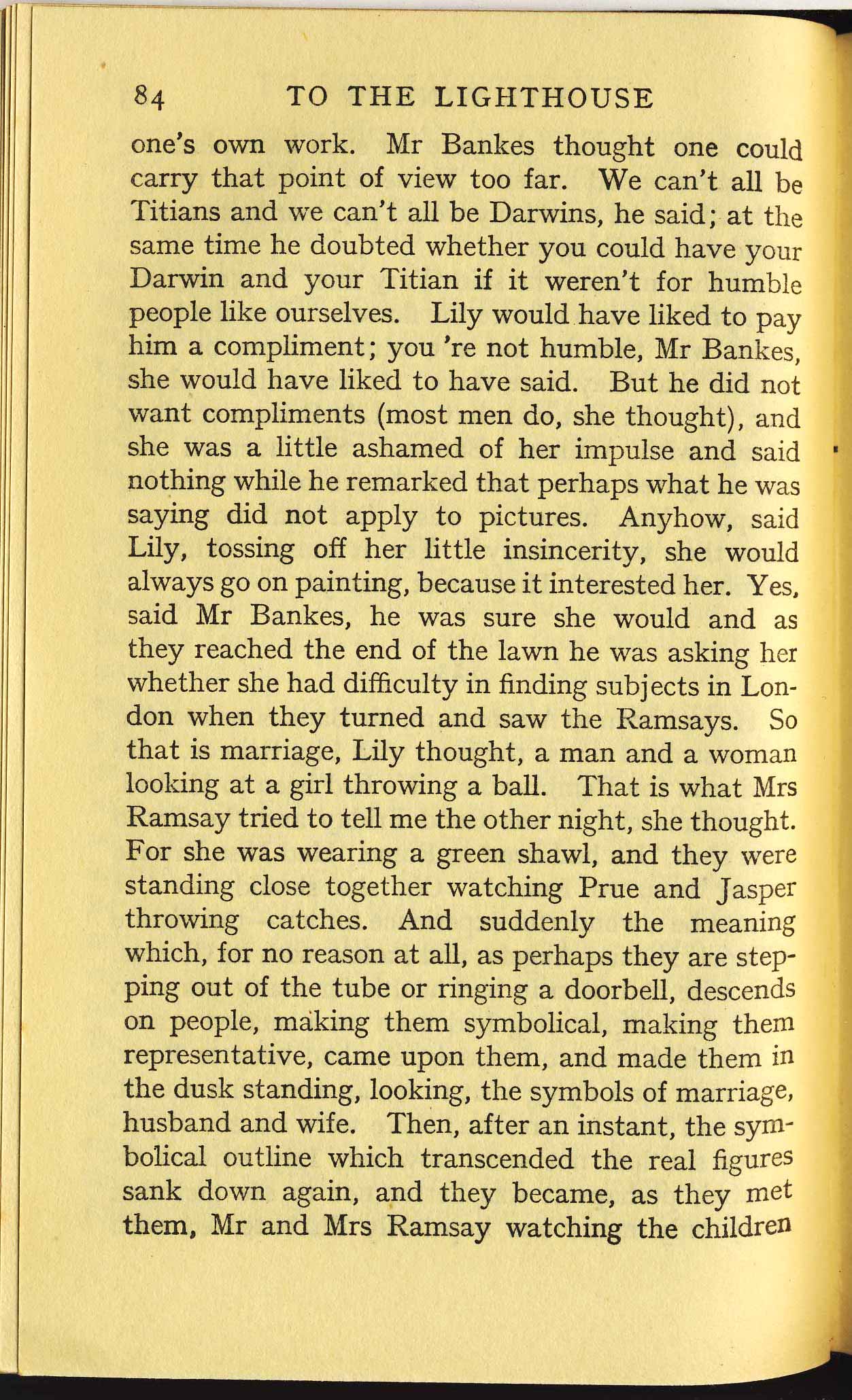
84 TO THE LIGHTHOUSEone’s own work. Mr Bankes thought one couldcarry that point of view too far. We can’t all beTitians and we can’t all be Darwins, he said; at thesame time he doubted whether you could have yourDarwin and your Titian if it weren’t for humblepeople like ourselves. Lily would have liked to payhim a compliment; you’re not humble, Mr Bankes,she would have liked to have said. But he did notwant compliments (most men do, she thought), andshe was a little ashamed of her impulse and saidnothing while he remarked that perhaps what he wassaying did not apply to pictures. Anyhow, saidLily, tossing off her little insincerity, she wouldalways go on painting, because it interested her. Yes,said Mr Bankes, he was sure she would and asthey reached the end of the lawn he was asking herwhether she had difficulty in finding subjects in Lon-don when they turned and saw the Ramsays. Sothat is marriage, Lily thought, a man and a womanlooking at a girl throwing a ball. That is what MrsRamsay tried to tell me the other night, she thought.For she was wearing a green shawl, and they werestanding close together watching Prue and Jasperthrowing catches. And suddenly the meaningwhich, for no reason at all, as perhaps they are step-ping out of the tube or ringing a doorbell, descendson people, making them symbolical, making themrepresentative, came upon them, and made them inthe dusk standing, looking, the symbols of marriage,husband and wife. Then, after an instant, the sym-bolical outline which transcended the real figuressank down again, and they became, as they metthem, Mr and Mrs Ramsay watching the children









